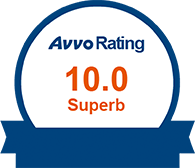
Miami Expunction Attorneys
Sealing a Criminal Record in Florida
If you are arrested, charged with a crime, or convicted of a criminal offense, you will have a permanent, public criminal record. However, in some very limited circumstances, individuals may have their criminal records “expunged” or sealed (two different processes). If your record is expunged, it must be physically destroyed, except for a single copy that can only be viewed by court order. Having your record expunged frees you (in most cases) from having to disclose your criminal record under public records laws.
To learn more about your options and whether or not you are eligible to have your criminal record expunged, contact our Miami expunction attorneys at Hubbs Law Firm. We are extensively experienced in all aspects of criminal law, including record expunction. We can help you understand your legal rights and, if appropriate, help you navigate the process of having your record sealed.
Contact Hubbs Law Firm online or call (305) 570-4802 for a free consultation with one of our attorneys. We are available after hours by appointment.
Steps to Expunge a Criminal Record in Florida
Step 1 – Determine If You Are Eligible
Ask yourself the following questions: Have I ever been arrested for an offense that resulted in an adjudication of guilt? Have I ever sealed or expunged a prior arrest or conviction prior to today?
If your answer to these questions is “yes”, then you are not eligible to seal or expunge your record. If your answer is “no”, then more than likely you will be eligible to seal or expunge your record.
Step 2 – Determine If You Need To Seal Or Expunge Your Records
If you are eligible, you should next determine whether you need to seal or expunge your records. If you are seeking an expungement, the law enforcement agency will destroy your records. If you are seeking to seal, the clerk of courts will seal your records, so they are confidential and are not accessible to third parties.
Obviously, expungement is preferable to sealing. However, you are only eligible to expunge arrests immediately that resulted in a no-file, no action, nolle prosse, or dismissal. If you received a withhold of adjudication or were found not guilty at trial, you must seal your records. You will be eligible to expunge the sealed records after ten years.
Step 3 – Obtaining Certificate of Eligibility in Florida
To expunge your record, your attorney will first help you obtain a valid certificate of eligibility from the Florida Department of Law Enforcement (FDLE).
To obtain the certificate of eligibility, your attorney will help you provide the following documents to FDLE:
- A written, certified statement from the appropriate state attorney or statewide prosecutor showing that:
- An indictment, information, or other charging document was not filed or issued in the case.
- An indictment, information, or other charging document, if filed or issued in the case, was dismissed or dropped by the state attorney or the court, and that none of the charges resulted in a trial, without regard to whether the outcome of the trial was other than an adjudication of guilt.
- Proof that the applicant does not have a criminal history record relating to certain delineated offenses prohibited under Florida law.
- A $75 processing fee, unless it is waived.
- A certified copy of the disposition of the charge as required in Section 943.0585(2)(a)-(c), F.S.
Step 4 – File A Petition With the Court for Expunction
After receiving the certificate of eligibility, the person must file a petition with the court to expunge the record.
The petition must include a sworn statement attesting that he or she:
- Has never been adjudicated guilty of a crime or comparable ordinance violation, or been adjudicated delinquent for committing any felony or a misdemeanor specified in s. 943.051(3)(b), F.S;
- Has never been adjudicated guilty of, or adjudicated delinquent for committing, any of the acts stemming from the arrest of alleged criminal activity to which the petition pertains;
- Has never secured a prior sealing or expunction of a criminal history record unless the petition for expunction is for a criminal history record previously sealed for 10 years, provided the record is otherwise eligible for expunction; and
- Is eligible for such an expunction and does not have any other petition to expunge or petition to seal before any court.
Are You Eligible to Seal or Expunge Your Criminal Record?
In Florida, as in other states, you are only eligible for criminal record sealing or expunction if you meet certain specific criteria.
As professional Miami criminal defense attorneys, we take every case personally give every client the deliberate care it deserves. Our clients become part of our family and we fight relentlessly for their rights. Read more about us to find out how we can help you.



Client Testimonials
-
"Erika was an absolute gem, she answered all our questions, was accommodating and let us know she needed to research my wife’s visa before telling us whether she would take our case. After doing research, she thankfully took our case. She made the pro"
-
"A loved one in our family had a very complex case and was being held in Broward County Transitional Center and faced deportation... They always kept steady communication, giving us updates, and plans of action, and answering any and all questions. Even aft"Alex M.
-
I would highly recommend him to anyone who needs a criminal/immigration attorney.
Anthony Hermans










